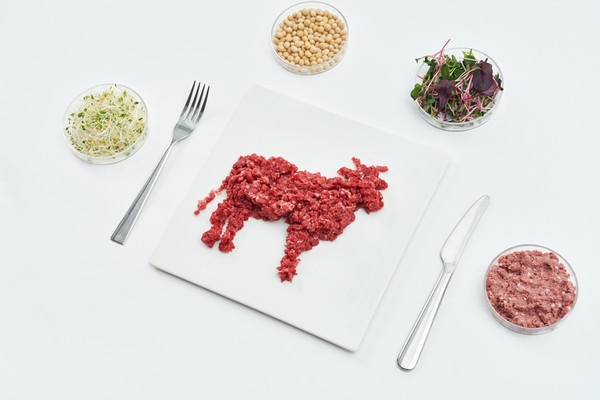
What Is the Future of Our Food?1)
Natural disasters such as floods and droughts are causing great damage around the world. In August, a drought continued for months in western China, causing damage to agricultural lands, and in September, floods struck Libya, causing numerous deaths. These natural disasters are caused by climate change, which is affecting global food production. The higher the temperature, the shorter the growth period of grain and the shorter time given to the ears to develop, which causes difficulty in harvesting. In particular, the world is experiencing food inflation as droughts are causing grain production to plummet. In this regard, the Intergovernmental Panel on Climate Change (IPCC) predicts that climate change will lead to food security challenges for all of humanity within decades and that major grain prices will rise by up to 23 percent by 2050. More food is needed due to population growth, but grain prices are likely to rise as food production decreases. It seems that this increase in food prices will have a significant negative impact on food purchases, especially for the vulnerable. Reconsidering the seriousness of this food reduction problem, the world is looking for alternatives for food security.
Various methods are being devised, such as future food being developed as alternative food. It includes edible insects instead of meat and textured vegetable protein (TVP), a replica of meat made from beans or grains. Quorn products in the UK are sold in various forms, including chicken breast, steak, and sausage, using plant-based fungi from mushrooms. Recently, clean meat that produces artificial meat made from cell cultures without slaughtering cows or pigs has gone on the market. The development of it is being encouraged since there are no greenhouse gasses emitted during the process, less land and water are used, and there is no need to use feed and antibiotics. In line with these changes, Smart farming is being proposed as an alternative for food security. It maintains the growing environment of crops and livestock in spaces where light, temperature, and humidity are artificially set by applying information and communication technology (ICT) to greenhouses. These smart farms can completely block out the external environment and sustain proper production even in typhoons, rainy seasons, and droughts. In addition, these are more productive than field cultivation, and they can maintain the same production of existing farmland cultivation in one-sixth of the area. In terms of lettuce, open fields can only be used twice a year, but it can be produced 12 times a year on smart farms. In response, a smart farm farmer said, "Although extreme weather disasters are causing great damage to agriculture, smart farms are not restricted." It shows that smart farms are emerging as effective solutions in small abnormal climates. As such, the emergence of alternative food and changing agricultural systems are being encouraged for food security, and it seems other effective alternatives would also be explored.
1) Son Um-ji, "The Era of New Smart Farm Framing…Safe to Eat Without Washing", NEWSIS, September 19, 2023


